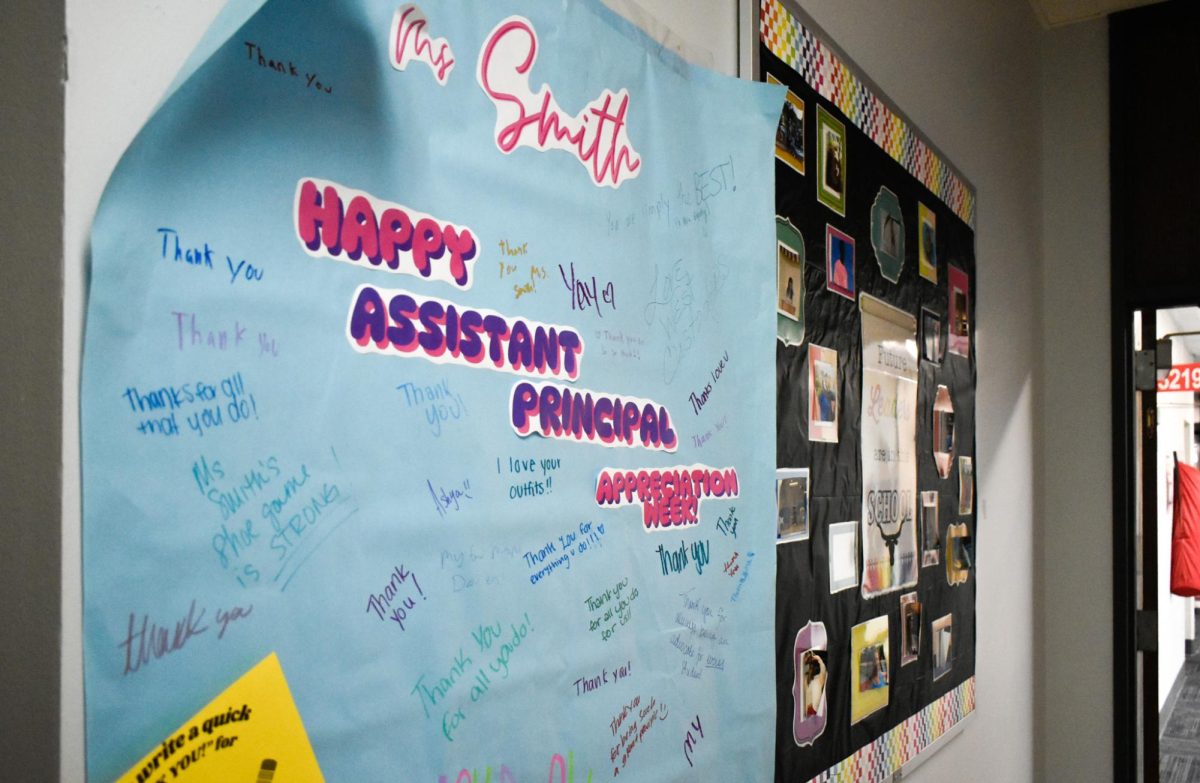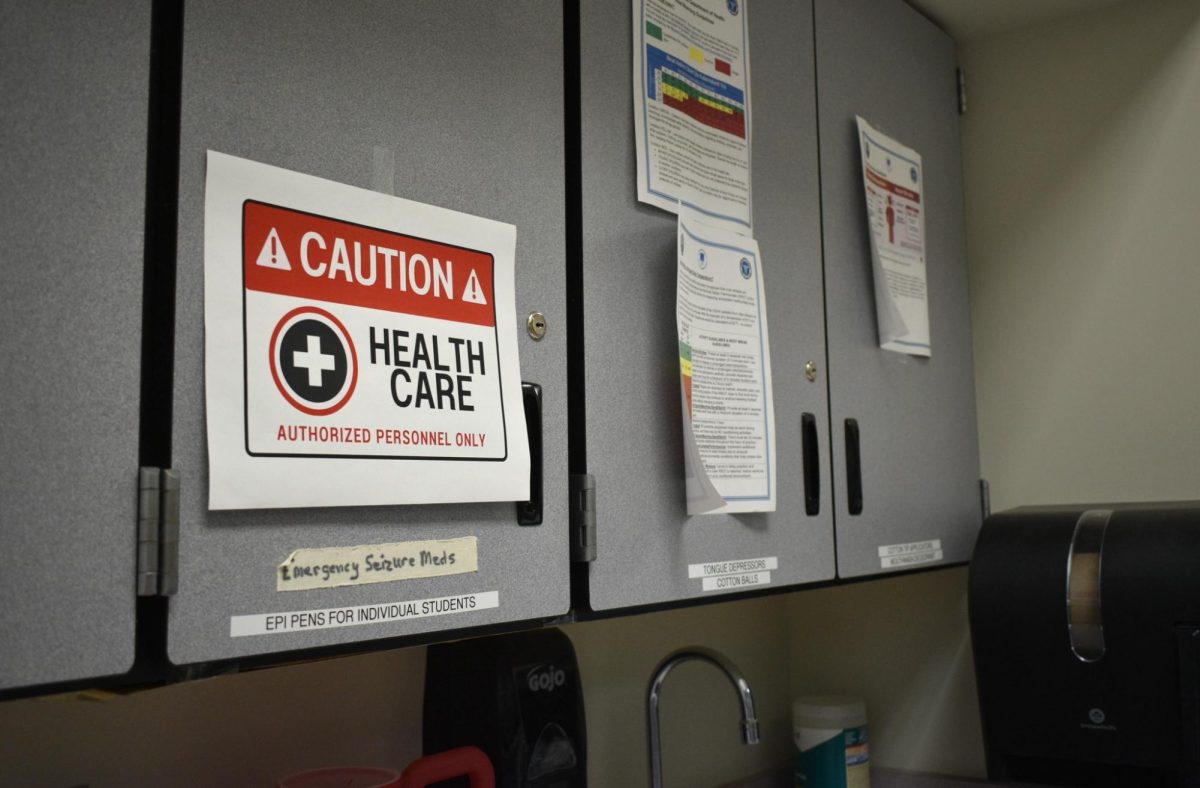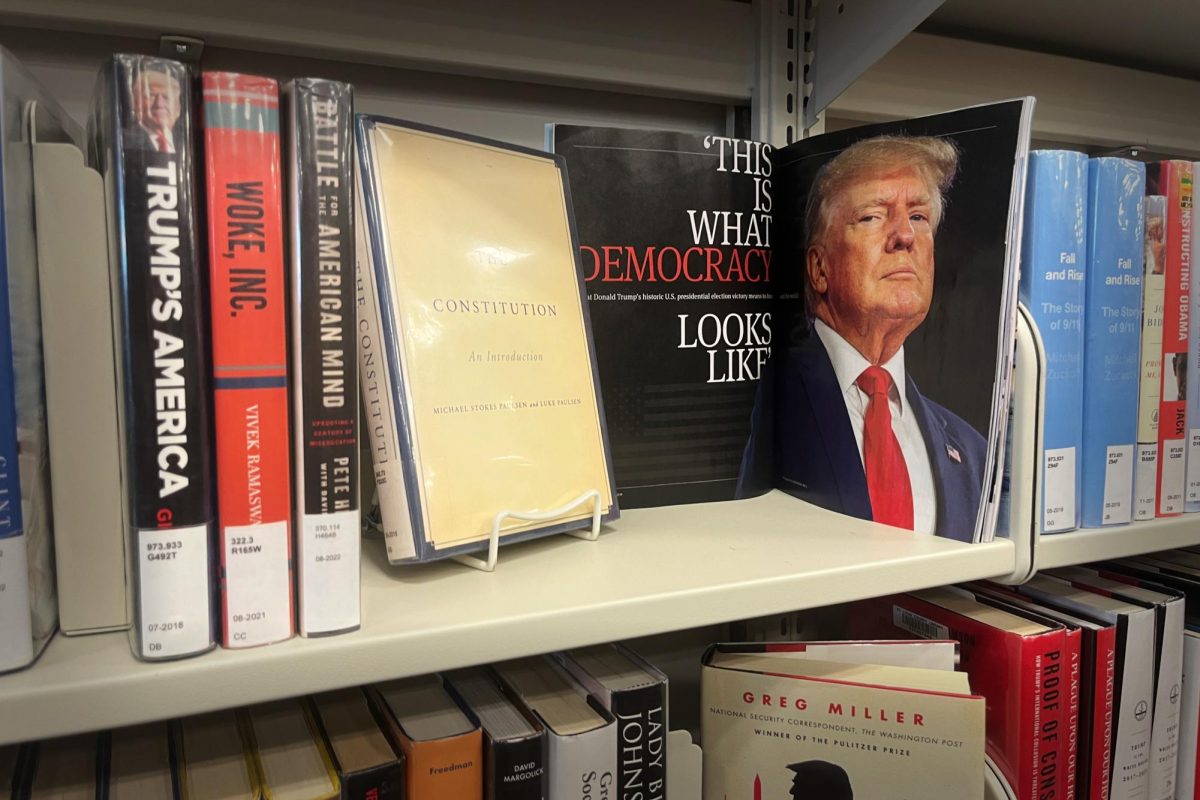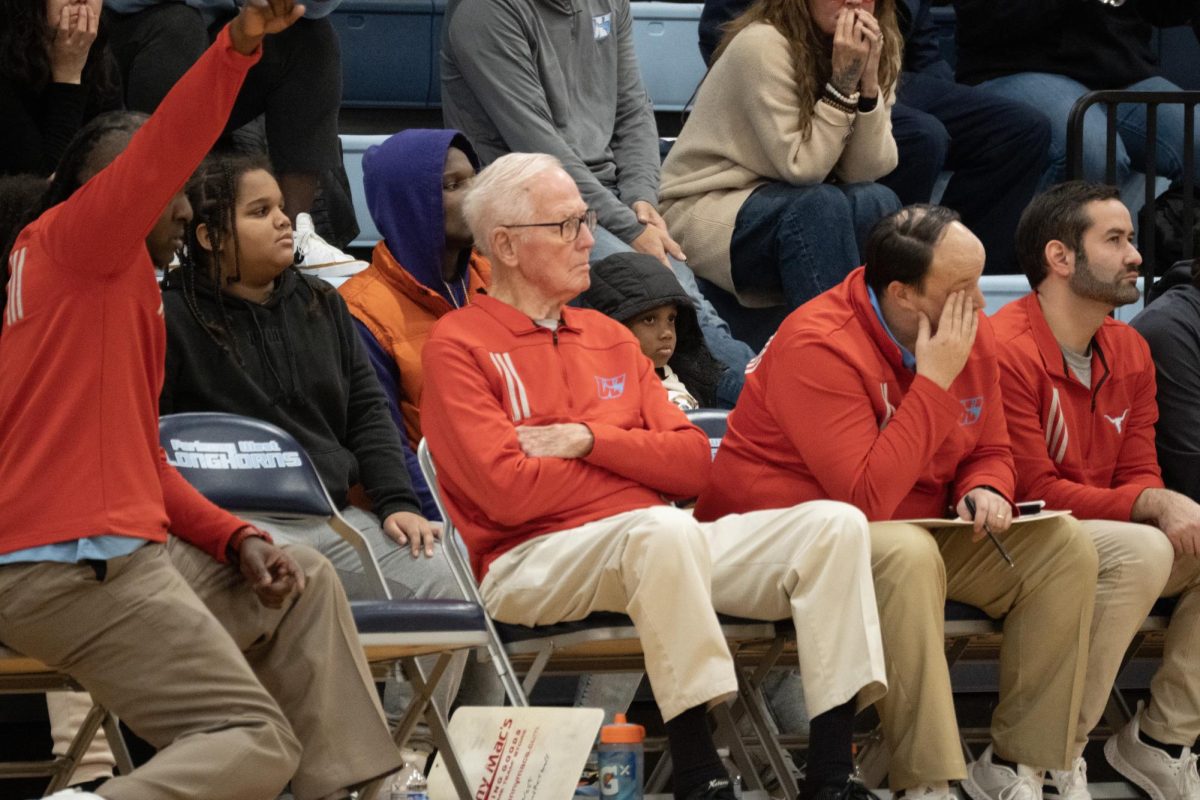Parkway was recently placed in the hot seat when Missouri Attorney General Andrew Bailey sent a cease and desist accusing the district of religious discrimination. The letter claimed that Parkway prohibited religious clubs, such as the Fellowship of Christian Athletes, in a manner that violated the constitutional rights of Missourians.
Fifteen days later, the district rebuked the claims in an email, asserting that “Parkway has a long history of supporting faith-based student clubs and recognizing their importance in creating a sense of belonging.” This email cited that all Parkway schools have active FCA clubs as well as other faith-based organizations, like Jewish and Muslim student unions.
However, Bailey’s issuing hints at a deeper problem; one that is plaguing classrooms and schools across the U.S. First, it is essential to note that Bailey’s case is not founded on facts — he sent a cease and desist without fully observing the truth. It is evident that religious clubs can openly express themselves on Parkway campuses. Given that it is an election year, and Bailey is seeking another term, one must question his motives. His lack of understanding of students’ true experiences gives the impression that he does not seem interested in truly advocating for Missourians. Rather, it is possible his letter could be an attempt to pander to his Christian base, exploiting a sensitive hot-button issue to gain their support.
Bailey’s letter is just one of a repetitive string of attempts by Missouri officials and legislators to use schools and their students as political bargaining chips. Since 2021, several Missouri Senate bills have been introduced to ban the teaching of critical race theory, an intellectual movement that emphasizes institutional racism in the United States, and the 1619 Project, which redirects a focus to slavery as the center of American history. These legislative attempts to control schools’ curricula based on political agendas undermine students’ right to a well-rounded education as well as the ability to discern and produce critical-thinking skills.
“School curriculum and funding have always been determined by legislation. As such, there has always been a political element to school curriculums, like reciting the Pledge of Allegiance or displaying the American flag in classrooms,” history teacher Mel Trotier said. “That said, the more recent legislation to ban courses or books is censorship that flirts with violating the First Amendment and the right to a fair and equitable education.”
Outside of Missouri, codified bills restricting teachers from discussing certain topics have long been enforced. Lawmakers have already censored how race and gender can be discussed across 18 states. In Virginia, Governor Glenn Youngkin even put into place a tip line for parents and the public to report teachers who condone “inherently divisive practices” like ‘critical race theory’.
“These tip lines have a direct effect on what teachers are willing to teach and what they perceive as a ‘risk’ that may not have been in the past. ‘Will teaching Romeo and Juliet get me in trouble this year?’ Teachers are asking themselves questions like this with increasing frequency,” Trotier said.
Consequently, tip lines and similar policies pit teachers against the general public that they serve — reporting services like tip lines enable parents to make a charge against teachers for sharing material that they disagree with, which forces teachers to be overly cautious with curricula at the risk of their employment. In other states, more specific courses are banned based on their content; Arkansas and Florida have targeted AP African American Studies, a newly developed class that covers topics from kingdoms in Africa to Jim Crow.
“In Florida’s banning of the AP African American history course, they are not only removing a valuable class from an AP and college credit standpoint, but they are effectively censoring what history students can learn about. Legislating and approving curriculum is one thing, but manipulating it to control the message or create an agenda is quite another,” Trotier said.
Most importantly, the censoring of relevant social topics deprives students of necessary conversations. While it is true that schools should not force political ideologies on students, this is not the goal of these curricula. Rather, they aim to present an alternative interpretation of an underrepresented history that could potentially explain the modern inequalities students face in contemporary American society. If a student disagrees with these interpretations, courses should give them a chance to voice their opinions and debate with their peers. Censoring history will not erase these inequalities; instead, suppression of our history will prevent students from having productive discussions and debates.
In addition to restricting ideas and topics they disagree with, many lawmakers seek to go further by inserting their agendas into curricula. HB 1576, filed this year, would specifically require schools to show students the “Meet Baby Olivia” video as part of their human sexuality and development curriculum. The video shows the development of an animated baby in the womb and was created by Live Action, an anti-abortion group that opposes the practice in all cases, including those involving rape or incest.
Critics of the video say that “Meet Baby Olivia” uses a timeline of pregnancy that starts at inception rather than the medical standard of starting at the end of the woman’s last menstrual cycle. Furthermore, the video presents fertilization as “the moment that life begins” and visualizes the fetus as “playing” and exploring its environment, ideas that are not scientifically supported, but rather pro-life argument points.
HB 1576 would force teachers to display the video in a required class meant to inform students on a fundamental life subject. It is an evident stab at inserting political ideology into the classroom, presenting the information within the video as fact, though in reality, it is teaching impressionable students to support a specific position. Although there is nothing wrong with showing students both sides of the abortion debate, especially in a social studies class where such debate is encouraged, this bill is motivated by the power struggle of politics rather than a concern for educating students.
Unlike critical race theory, African American Studies or the 1619 Project, a vast portion of the “Meet Baby Olivia” video is based on opinion rather than sound academic research. The video is specifically manufactured by a pro-life group to advance pro-life ideology, rather than accurately teaching students. If the true goal of HB 1576 was to educate students on human development, there are plenty of other non-politically biased ways to do so.
Perhaps the most concerning foray of governmental interference in education is HB 2885. The bill, co-sponsored by five Missouri House Republicans, makes it a felony for a teacher or counselor to help a student socially transition. Specifically, school staff could be charged for providing “material, information or other resources” to aid transgender students in adopting the “name, pronouns and gender expression” of their chosen identities. If found guilty, the aider must register as a sex offender.
If passed, the bill would put teachers in a precarious position, possibly landing on the same list as abusers, kidnappers and molesters for simply supporting a student’s ability to express themselves how they wish to be seen.
Furthermore, this bill would put transgender students in danger. With half of transgender and nonbinary youth considering suicide due to bullying and social stigma, the group is already incredibly vulnerable, as emphasized in Oklahoma student Nex Benedict’s tragic case. In February, after Oklahoma passed a bill forcing students to use the bathroom of their birth sex, the nonbinary 16-year-old was violently beaten in a girls’ bathroom. The next day, Benedict died by suicide.
Benedict’s story reflects the catastrophic cost of policies that make schools more unaccepting: the safety and mental health of marginalized students. For these targeted groups, teachers and counselors are crucial sources of support and reassurance — HB 2885 would take that support away, putting even more youth at risk. Pushing political ideologies that intrinsically threaten school faculty will harm those within our schools more than help, and are completely unsafe to students’ and faculty members’ well-being.
At the end of the day, lawyers and lawmakers are not sitting next to us at school. They do not experience the process of leading classrooms and standing with students through their struggles and successes. Teachers are the ones who take on the monumental task of educating the next generation, dedicating their lives to our future — shouldn’t we trust them to do their job?
When lawmakers create laws and policies that seek to censor both students’ access to a diverse, varied-perspective education, as well as student expression, they are putting both a student’s ability to learn and thrive in school at risk. Missouri’s recent attempts at inserting political controversy into classrooms not only rob students of the diversely rich education we deserve but also make schools a less welcoming — and dangerous — place.





![Red, white and blue, the American flag holds the values of our democracy. The fight that we once endured has returned, as student journalists and senior correspondents across the country are losing their voices due to government control. “[Are] the White House and [the] government limiting free speech [and] freedom of the press? Yes [they are],” chief communications officer of the Parkway School District and former journalist Elisa Tomich said.](https://pwestpathfinder.com/wp-content/uploads/2025/03/Untitled-design-14.jpg)
![A board in the Parkway West counseling department displays pennants of selective universities. With a wide range of students interested in attending, it’s important that these schools have clear priorities when deciding who to admit. “[Washington University] had the major that I wanted, psychology, philosophy, neuroscience. That's a holistic study of the brain, and [WashU is] the only college in the world that offers that. That's the main reason I wanted to go; I got into that program,” senior Dima Layth said.](https://pwestpathfinder.com/wp-content/uploads/2025/02/Flag-1.png)

![Within the U.S., the busiest shopping period of the year is Cyber Week, the time from Thanksgiving through Black Friday and Cyber Monday. This year, shoppers spent $13.3 billion on Cyber Monday, which is a 7.3% year-over-year increase from 2023. “When I was younger, I would always be out with my mom getting Christmas gifts or just shopping in general. Now, as she has gotten older, I've noticed [that almost] every day, I'll open the front door and there's three packages that my mom has ordered. Part of that is she just doesn't always have the time to go to a store for 30 minutes to an hour, but the other part is when she gets bored, she has easy access to [shopping],” junior Grace Garetson said.](https://pwestpathfinder.com/wp-content/uploads/2024/12/DSC_0249.JPG-1200x801.jpg)

![Senior Sally Peters stands in the history hallway, contemplating her choices in the 2024 United States and Missouri elections on Nov. 5. As a member of Diplomacy Club, Peters has discussed key candidates and issues in contemporary American politics. “[As students], we're starting to become adults. We're realizing how much the policies that are enforced and the laws that make it through the House and Senate are starting to affect us. [Opportunities such as] AP [U.S.Government] and Diplomacy Club [make elections feel] a lot more real,” Diplomacy Club vice president and senior Nidhisha Pejathaya said.](https://pwestpathfinder.com/wp-content/uploads/2024/10/Flag-1-1.png)
![Mounting school pressure can leave many students overworked and overstressed. Schools must give students the necessary resources to help assuage student mental health issues and prevent the development of serious crises. “The biggest thing [schools] can do [to protect student mental health] is offer more time [to do work], like a study hall, or offer more support from teachers so that students don't feel stressed out and can get help in areas that they need,” senior Bhavya Gupta said.](https://pwestpathfinder.com/wp-content/uploads/2024/09/unnamed-4.jpg)
![Like many students, sophomore Medina Nanic experiences pressure to do well in school. Through continuous success and achievements, West has developed a high academic standard for students. “Because we’re seen as one [of] the better schools, we have higher standards than the [schools] who aren’t ranked as high. There’s a lot of pressure on students to do [well] and live up to those standards,” Nanic said.](https://pwestpathfinder.com/wp-content/uploads/2024/05/DSC_0029-2-1200x800.jpg)
![Junior Fiona Dye lifts weights in Strength and Conditioning. Now that the Trump administration has instituted policies such as AI deregulation, tariffs and university funding freezes, women may have to work twice as hard to get half as far. "[Trump] wants America to be more divided; he wants to inspire hatred in people,” feminist club member and junior Clara Lazarini said.](https://pwestpathfinder.com/wp-content/uploads/2025/05/Flag.png)
![As the Trump administration cracks down on immigration, it scapegoats many immigrants for the United States’ plights, precipitating a possible genocide. Sophomore Annabella Whiteley moved from the United Kingdom when she was eight. “It’s pretty scary because I’m on a visa. When my visa expires next year, I’m not sure what’s going to happen, especially with [immigration] policies up in the air, so it is a concern for my family,” Whiteley said.](https://pwestpathfinder.com/wp-content/uploads/2025/05/DSC_0077-7copy.jpg)
![Shifting global trade, President Donald Trump’s tariffs are raising concerns about economic stability for the U.S. and other countries alike. “[The tariffs are] going to pose a distinct challenge to the U.S. economy and a challenge to the global economy on the whole because it's going to greatly upset who trades with who and where resources and products are going to come from,” social studies teacher Melvin Trotier said.](https://pwestpathfinder.com/wp-content/uploads/2025/05/MDB_3456-1200x800.jpg)

![Pitching the ball on Apr. 14, senior Henry Wild and his team play against Belleville East. Wild was named scholar athlete of the year by St. Louis Post-Dispatch after maintaining a high cumulative GPA and staying involved with athletics for all of high school. “It’s an amazing honor. I feel very blessed to have the opportunity to represent my school [and] what [it] stands for,” Wild said.](https://pwestpathfinder.com/wp-content/uploads/2025/05/unnamed-6-1200x714.jpg)
![Freezing in their position, the Addams Family cast hits the “rigor mortis” pose after cast member and senior Jack Mullen, in character as Gomez Addams, calls out the stiff death move. For the past four months, the combined company of cast members, orchestra pit, crew and directors all worked to create the familial chemistry of the show. “I’m excited for [the audience] to see the numbers, the music, the scenes, but I also just love all the technical aspects of it. The whole spectacle, the costumes, makeup and the people that put in the work backstage in order to make the show successful on stage. I’m excited for people to see and appreciate that,” Mullen said.](https://pwestpathfinder.com/wp-content/uploads/2025/03/DSC0116-1200x800.jpg)

![Some of the most deadly instances of gun violence have occurred in schools, communities and other ‘safe spaces’ for students. These uncontrolled settings give way to the need for gun regulation, including background and mental health checks. “Gun control comes about with more laws, but there are a lot of guns out there that people could obtain illegally. What is a solution that would get the illegal guns off the street? We have yet to find [one],” social studies teacher Nancy Sachtlaben said.](https://pwestpathfinder.com/wp-content/uploads/2025/01/DSC_5122-1200x800.jpg)
![Complex global supply chains supply the goods for everyday luxuries, such as the coffee at West High’s Blue Brew. Low tariffs enabled much of the prosperity of modern history. “Higher tariffs lead to higher costs. A tariff is a tax on an imported good, and someone has to pay for that tax, and typically that [will] end up impacting consumers,” economics teacher Rachel Money said.](https://pwestpathfinder.com/wp-content/uploads/2024/12/Flag-1.png)


Amanda Michel • Apr 4, 2024 at 3:22 pm
Yes, WTG! Excellent points and helpful information. I’m glad Mr. Trotier is one of my kid’s teachers. Only problem is that you meant “anti-abortion”, not “pro-choice” regarding the Baby Olivia video.
Pathfinder Editorial Board • Apr 8, 2024 at 12:56 pm
Thank you for your comment. A correction has been made to the article.